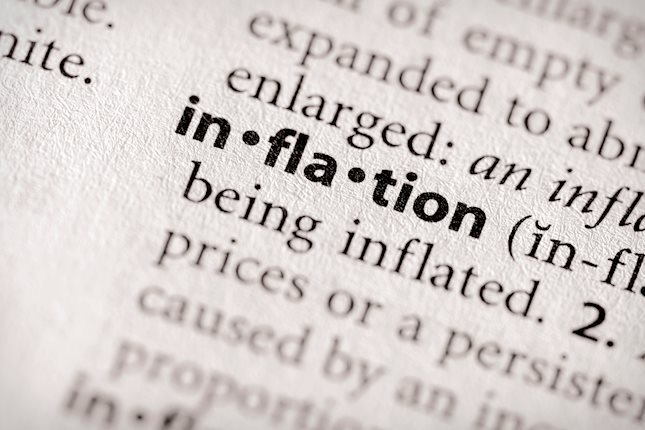- USD/JPY softens to near 150.05 despite stronger USD in Friday’s Asian session.
- Japan's CPI inflation drops from 3.0% to 2.5% in September.
- The upbeat US economic data strengthens the case for 25 bps Fed rate cuts.
The USD/JPY pair edges lower to around 150.05 despite the firmer US dollar (USD) on Friday during the early Asian session. Investors will keep an eye on the US Building Permits and Housing Starts, which are due later on Friday. The Federal Reserve’s (Fed) Raphael Bostic, Neel Kashkari and Christopher Waller are also set to speak later in the day.
Japan's annual Consumer Price Index (CPI) rose 2.5% in September, compared to 3.0% reported in August, the Statistics Bureau of Japan showed on Friday. Meanwhile, the CPI excluding fresh food and energy grew 2.1% year-over-year in September. The CPI excluding fresh food climbed by 2.4% on an annual basis during the same period. The figure came in slightly stronger than the consensus estimate of 2.3%.
The slowdown in price gains might have a limited impact on the Bank of Japan’s (BoJ) policy path. The BoJ Governor Kazuo Ueda said the Japanese central bank will keep raising rates if inflation remains on track to stably hit the 2% target, adding that the BoJ will spend time gauging how global economic uncertainties affect Japan's fragile recovery. The BoJ is widely expected to hold the benchmark rate steady on October 31.
“The BOJ is waiting to see how the US economy holds up before raising rates further. We think it will be able to confirm a US soft landing by the time it holds its January board meeting,” noted Taro Kimura, economist from Bloomberg Economics.
On the USD’s front, the stronger-than-expected US September Retail sales indicated the US economy maintained a strong growth pace in the third quarter. This, in turn, might cap the downside for the US Dollar (USD).
The US Fed is likely to maintain a very cautious approach to cutting rates. Atlanta Fed President Bostic said that he has one more 25 bps rate cut pencilled in for this year. Minneapolis Fed President Neel Kashkari stated that future interest rate cuts would be “modest” and emphasized that policy decisions would depend on economic data. Money markets are now pricing a 90.3% probability of a 25bps rate cut next month, according to the CME Fed Watch Tool.
Japanese Yen FAQs
The Japanese Yen (JPY) is one of the world’s most traded currencies. Its value is broadly determined by the performance of the Japanese economy, but more specifically by the Bank of Japan’s policy, the differential between Japanese and US bond yields, or risk sentiment among traders, among other factors.
One of the Bank of Japan’s mandates is currency control, so its moves are key for the Yen. The BoJ has directly intervened in currency markets sometimes, generally to lower the value of the Yen, although it refrains from doing it often due to political concerns of its main trading partners. The BoJ ultra-loose monetary policy between 2013 and 2024 caused the Yen to depreciate against its main currency peers due to an increasing policy divergence between the Bank of Japan and other main central banks. More recently, the gradually unwinding of this ultra-loose policy has given some support to the Yen.
Over the last decade, the BoJ’s stance of sticking to ultra-loose monetary policy has led to a widening policy divergence with other central banks, particularly with the US Federal Reserve. This supported a widening of the differential between the 10-year US and Japanese bonds, which favored the US Dollar against the Japanese Yen. The BoJ decision in 2024 to gradually abandon the ultra-loose policy, coupled with interest-rate cuts in other major central banks, is narrowing this differential.
The Japanese Yen is often seen as a safe-haven investment. This means that in times of market stress, investors are more likely to put their money in the Japanese currency due to its supposed reliability and stability. Turbulent times are likely to strengthen the Yen’s value against other currencies seen as more risky to invest in.
Information on these pages contains forward-looking statements that involve risks and uncertainties. Markets and instruments profiled on this page are for informational purposes only and should not in any way come across as a recommendation to buy or sell in these assets. You should do your own thorough research before making any investment decisions. FXStreet does not in any way guarantee that this information is free from mistakes, errors, or material misstatements. It also does not guarantee that this information is of a timely nature. Investing in Open Markets involves a great deal of risk, including the loss of all or a portion of your investment, as well as emotional distress. All risks, losses and costs associated with investing, including total loss of principal, are your responsibility. The views and opinions expressed in this article are those of the authors and do not necessarily reflect the official policy or position of FXStreet nor its advertisers. The author will not be held responsible for information that is found at the end of links posted on this page.
If not otherwise explicitly mentioned in the body of the article, at the time of writing, the author has no position in any stock mentioned in this article and no business relationship with any company mentioned. The author has not received compensation for writing this article, other than from FXStreet.
FXStreet and the author do not provide personalized recommendations. The author makes no representations as to the accuracy, completeness, or suitability of this information. FXStreet and the author will not be liable for any errors, omissions or any losses, injuries or damages arising from this information and its display or use. Errors and omissions excepted.
The author and FXStreet are not registered investment advisors and nothing in this article is intended to be investment advice.
Recommended content
Editors’ Picks

EUR/USD trades deep in red below 1.0300 after strong US jobs report
EUR/USD stays under bearish pressure and trades below 1.0300 in the American session on Friday. The US Dollar benefits from the upbeat jobs report, which showed an increase of 256,000 in Nonfarm Payrolls, and forces the pair to stay on the back foot heading into the weekend.

GBP/USD drops toward 1.2200 on broad USD demand
GBP/USD extends its weekly slide and trades at its weakest level since November 2023 below 1.2250. The data from the US showed that Nonfarm Payrolls rose by 256,000 in December, fuelling a US Dollar rally and weighing on the pair.

Gold ignores upbeat US data, approaches $2,700
Following a drop toward $2,660 with the immediate reaction to strong US employment data for December, Gold regained its traction and climbed towards $2,700. The risk-averse market atmosphere seems to be supporting XAU/USD despite renewed USD strength.

Sui bulls eyes for a new all-time high of $6.35
Sui price recovers most of its weekly losses and trades around $5.06 at the time of writing on Friday. On-chain metrics hint at a rally ahead as SUI’s long-to-short ratio reaches the highest level in over a month, and open interest is also rising.

Think ahead: Mixed inflation data
Core CPI data from the US next week could ease concerns about prolonged elevated inflation while in Central and Eastern Europe, inflation readings look set to remain high.

Best Forex Brokers with Low Spreads
VERIFIED Low spreads are crucial for reducing trading costs. Explore top Forex brokers offering competitive spreads and high leverage. Compare options for EUR/USD, GBP/USD, USD/JPY, and Gold.